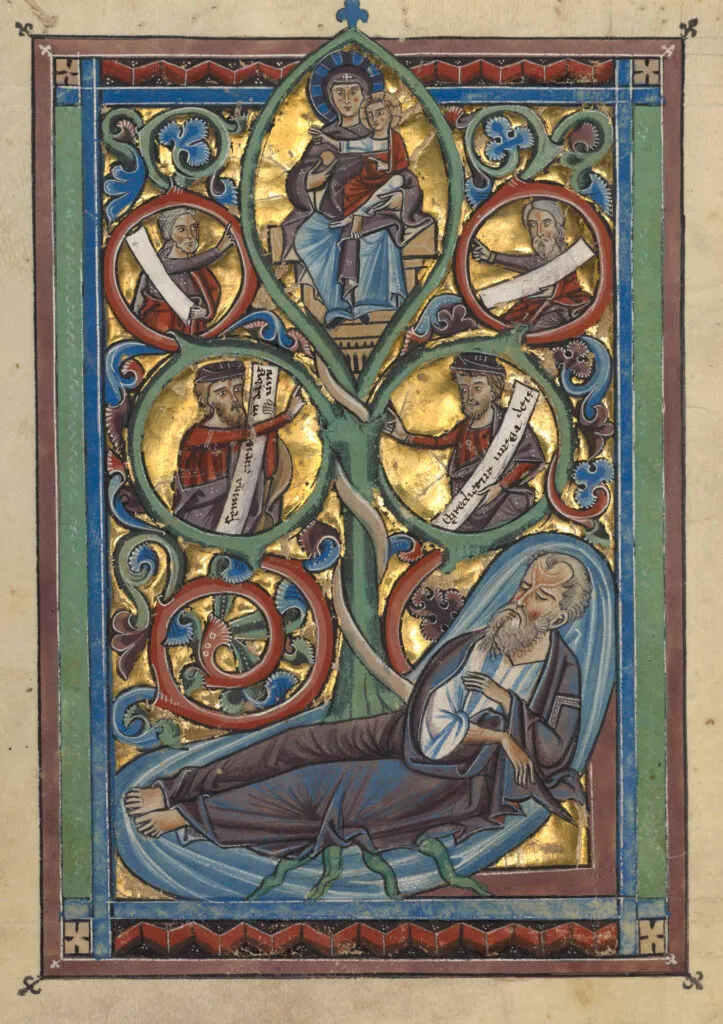
Prayer & Poetry
At vespers tonight, the feast of Sts Joachim and Anne, I was struck by the Magnificat antiphon. The text is familiar, but it was as if I read it for the first time: ‘Inclita stirps Iesse virgam produxit amoenam, de qua processit flos miro plenus odore’ (The glorious stem of Jesse brought forth a lovely shoot from which proceeded a flower replete with wondrous scent’). The repeated dactyls produce a pleasing rhythm moving towards the restful syllable ‘flos’, which is a way of conveying, without clunky commentary, that the feast is not primarily about the individuals named but about the fruit of their union, whose whole existence was oriented towards Christ. The noun ‘virga’ (‘shoot’) suggests ‘virgo’ (virgin). The image used to describe her Child indicates the important Pauline theme of Christ’s fragrance (2 Cor 2:15). More could be said about the choice of words. These riches are contained in a single, humble line. Why did it impress me so? Because it is so unlike many newer liturgical prayers, which read like announcements in morning assembly. Is one reason behind the trouble we have integrating our liturgical past a loss of poetry?
